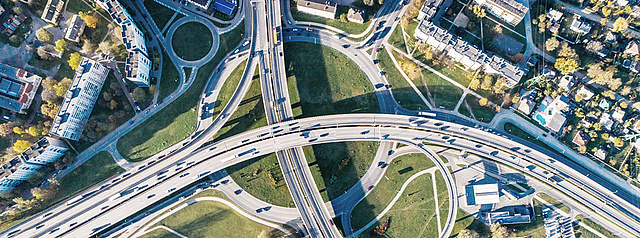
Sustainable Mobility of People and Goods
The topic of "sustainability" is becoming increasingly important due to rising legislative requirements placed on by governments, growing social concerns about climate change, and new findings from the scientific community. In particular, passenger and freight mobility plays a key role in this context, as it represents a major contributor of greenhouse gas emissions.
The goal of the faculty initiative is to make a significant contribution to reducing these emissions through cross-institute collaboration. The interaction of the institutes with different research foci allows not only a consideration of mobility itself (e.g. by strengthening rail freight transport), but also the inclusion of new technologies (e.g. holistic simulation models), new business models and the society. In the context of this research project, the Institute of Innovation and Industrial Management focuses on industrial networks, which are also increasingly faced with the challenge of increasing uncertainty and complexity in a globalized business world, as CO2 emissions or sustainability in general often play a subordinate role in these decisions. Thus, one of the research foci of the institute, agility, is extended by the topic of sustainability in order to be able to answer the central question "How should freight transport, or the industrial network itself, look like when factors of ecological and economic sustainability as well as agility of a company are taken into account?". To answer this guiding question, the project is divided into the following three phases:
Analysis
Within the first phase, logistics in distributed industrial networks will be analysed. The aim is not only to identify relevant sustainability factors and their evaluation methods in logistics networks, but also to analyse the weaknesses of existing planning procedures for logistics networks. Furthermore, agility as a target parameter for the design of logistics and in the design of distributed industrial networks is investigated.
Evaluation and potential assessment
First, the sustainability factors identified in the analysis phase are evaluated. This is followed by a potential assessment of the cause-effect relationships of agile and sustainable logistics in distributed industrial networks. Finally, the second phase concludes with an evaluation of the sustainability factors and the agility levers of logistics on distributed industrial networks. Concept for sustainable and agile logistics in distributed industrial networks: In the last phase, the development of a process model for the design of logistics for distributed industrial networks with a focus on sustainability and agility, taking into account required processes, technologies used, etc., is carried out firstly. Finally, simulation models are created to visualize industrial deployment scenarios on the one hand and to validate the developed model at the same time on the other hand.
The Institute of Innovation and Industrial Management thus contributes to the reduction of pollutant emissions caused by freight transport, taking into account market uncertainties, within the framework of the faculty initiative.
